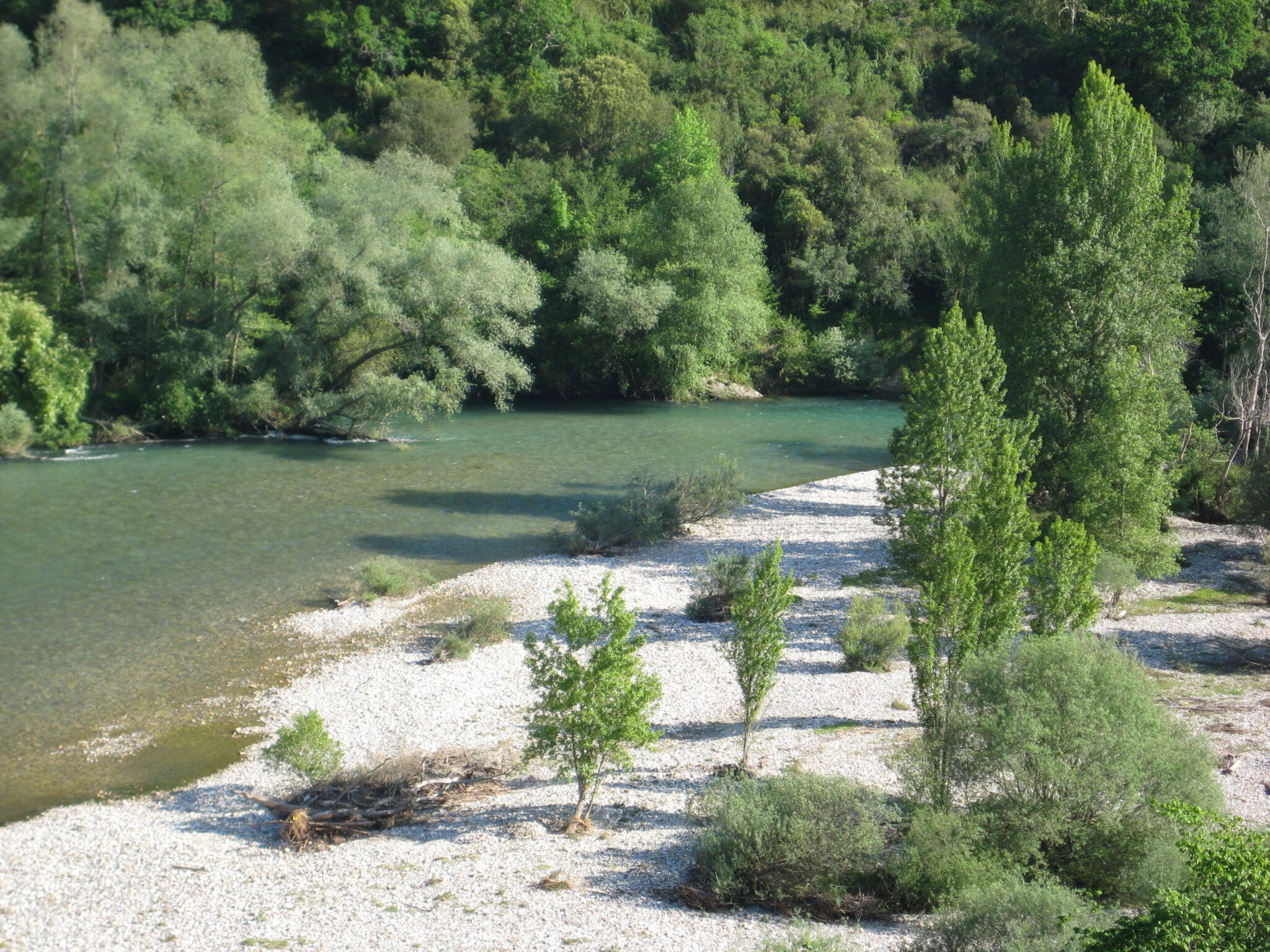IHCantabria develops projects that promote the conservation of riparian forests and their contribution to biodiversity and river ecosystems

Image showing one of the best preserved riparian zones in northern Spain for riparian vegetation of low river reaches in the Deva-Cares river.
Riparian forests are key to the sustainable management of water resources and adaptation to climate change. With three flagship projects, funded by the European Union, IHCantabria continues to lead efforts to ensure a sustainable future for rivers and their ecosystems.
Rivers and their riparian environment play a crucial role in the sustainability of water resources and adaptation to climate change. In this context, the Freshwater Ecosystems Group of the Institute of Environmental Hydraulics of the University of Cantabria(IHCantabria) is leading research for more than a decade, to understand and promote the conservation of riparian forests and their contribution to biodiversity, functioning and ecosystem services. Three flagship projects stand out in this research line: RIPARIANET, Cop.RIVER and NBRACER.
The riparian forests, located on the banks of rivers and floodplains, play a crucial role in the regulation of the fluvial environment. They act as green filters – regulating the flow of sediments, nutrients and organic matter – as well as contributing to biodiversity, as they are home to diverse communities of mammals, birds, amphibians and insects. They also act as ecological corridors, facilitating the flux of organisms and ecological processes along river networks.
RIPARIANET Project – Prioritising riparian ecotones to sustain and connect multiple biodiversity and functional components in river networks (2022-2025)
This project brings together six research teams from universities in Spain, Portugal, Italy, Germany and Sweden to identify riparian areas of high functional value in order to conserve and improve biodiversity and the functioning of river ecosystems. One of the particularities of this project is that it promotes the active participation of scientists, environmental authorities and society in general to identify and preserve functional hotspots.
Cop.RIVER Project – Copernicus Tools for Monitoring Global Change Effects in Rivers and Riparian Zones (2022-2025)
This project, developed by IHCantabria exclusively, proposes to evaluate and improve COPERNICUS tools for monitoring the effects of global change on rivers and riparian zones. Its objective is to identify the needs of the reporting process for riparian habitat conservation status and to assess the suitability of remote sensing tools provided by the European Space Agency (ESA) COPERNICUS program.
NBRACER Project – Nature Based Solutions for Atlantic Regional Climate Resilience (2023-2027)
Integrated by a consortium of 30 European entities (Netherlands, Spain, France, Belgium, Portugal, Italy, Germany, Denmark), this project aims to assess the effectiveness of multiple nature-based solutions (NBS) and develop implementation and monitoring frameworks to improve regional climate resilience in the Atlantic, highlighting the importance of riparian forests in this process.
The three aforementioned projects are led by José Barquín Ortiz -tenured professor of the University of Cantabria and responsible for the Freshwater Ecosystems Group of IHCantabria– and where other professors of this university are also participating, as well as pre and post-doctoral researchers and technicians of this institution.
The development of these three projects not only advances the scientific knowledge about riparian forests and their role in ecosystem functioning and services, but also in the engagement of multiple stakeholders. This ensures that the results and methods are aligned with the needs of society and contribute to a more sustainable management of water resources.
Therefore, the scientific knowledge generated in the RIPARIANET, Cop.RIVER and NBRACER projects, and its transfer to various groups of interest (such as environmental authorities and society in general), will convey the importance of riparian forests and their enormous potential as tools for more effective and sustainable management, in order to prioritize their conservation and promote the investment in river restoration projects.



